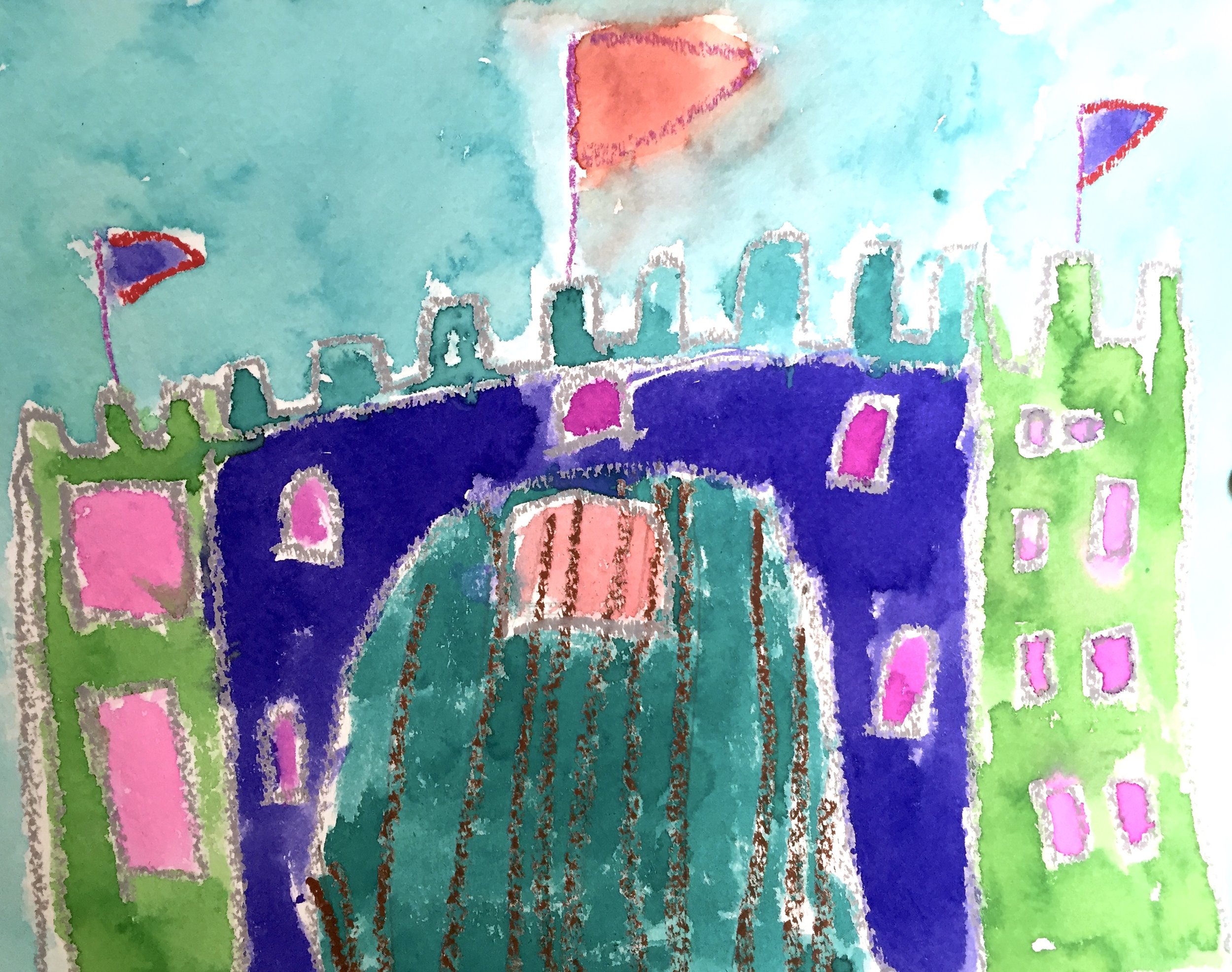During my time as owner and teacher of Erin’s Art School, I designed and executed all of the curriculum. My lessons met Alaska state standards and included work in creativity, technique, art history, aesthetics (philosophies of art), and criticism. I taught students ages 3 to 18. Below are some of my lesson plans as well as samples of student work.
Plein Air Painting
In this lesson, student study the Impressionist practice of painting outdoors. Light and color are considered. Impressionist paintings are compared and contrasted. Students create a landscape painting of watercolor or gouache.
Surrealist Collages
In this TAB (thinking for artistic behavior) lesson, students use collage techniques and learn about juxtaposition. The artwork of Marc Chagall and Maurice Sendak are studied.
Animal Drawings
In this lesson, students study the work of Eli Halpin, an Alaskan-raised contemporary artist. There is an exploration of color and pattern and a discussion about the mood evoked by the paintings. Students create a drawing, painting, or multi-media image of an animal of choice.
Watercolor Castles
In this lesson, students learn the term “architecture” and talk about various forms of architecture familiar to them. Castles are explored in depth and practical and decorative elements are compared and contrasted. Students create a representation of a castle with watercolor and oil pastels.
Environmental Art
In this lesson, students study the work of land artists such as Andy Goldsworthy. The relationship between art and nature is explored. Color, pattern, shape, texture, and lines and identified and practiced in a collaborative land art piece.
Art Shows
At the end of every semester, students’ work was displayed at the Palmer Public Library or the Palmer Senior Center for 7-10 days.
Colors and Feelings
In this lesson, students explore color theory and its relationship to emotion. A study is made of Kandinsky’s Concentric Circles. Self-reflection is key in this activity.
After Louise Nevelson
In this lesson, students study the life and work of Louise Nevelson. In her style of emphasizing line, shape, and form over color or representation, students will learn these elements of art and create a paper or found object sculpture. Students will explore their thoughts about representational vs. non-representational art.
Fiber Art
In this lesson, students look at the fiber art of Faith Ringgold. They discuss the difference between fine fiber art and utilitarian fiber objects. Pattern, repetition, and variety are taught and used in a weaving.
Art in the Community
I have participated in community events such as free art classes at the Palmer Public Library, the Palmer Midsummer Garden and Art Faire, Swanson Elementary Art Night, Art Night at Government Peak, and more.










